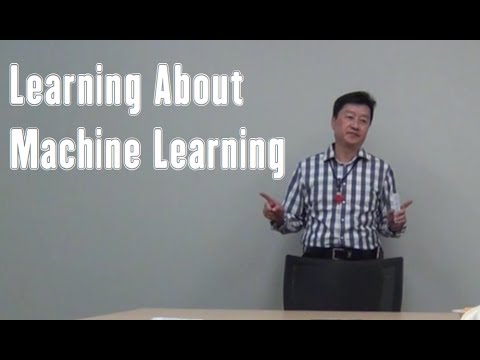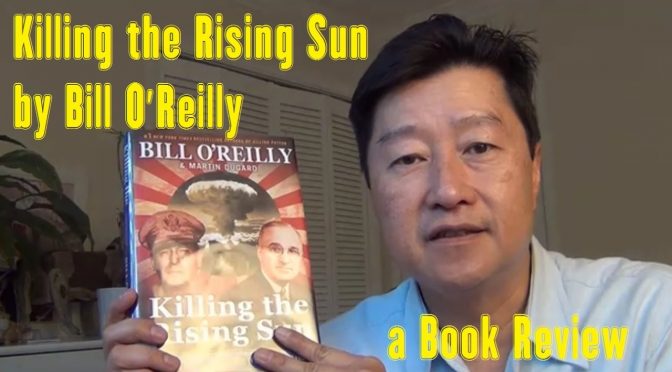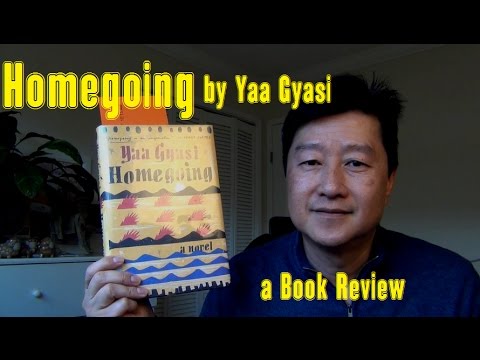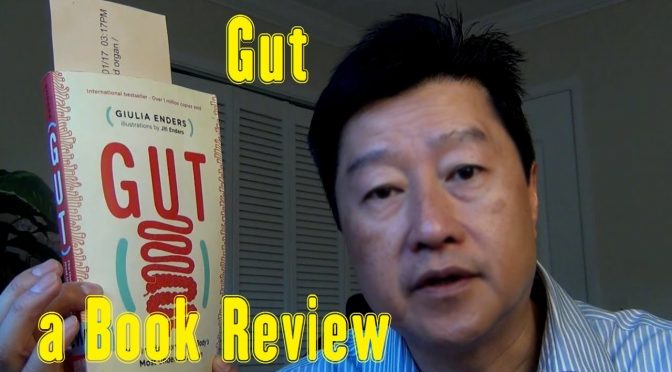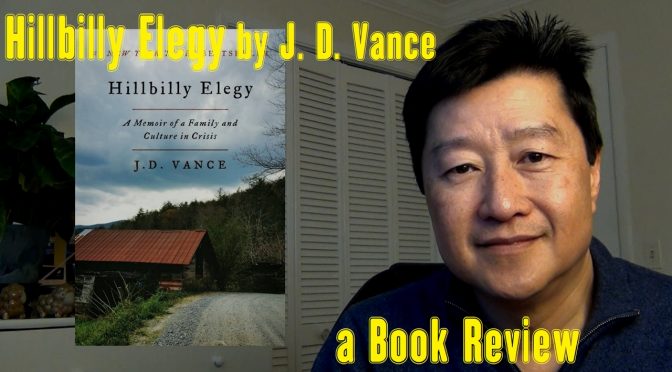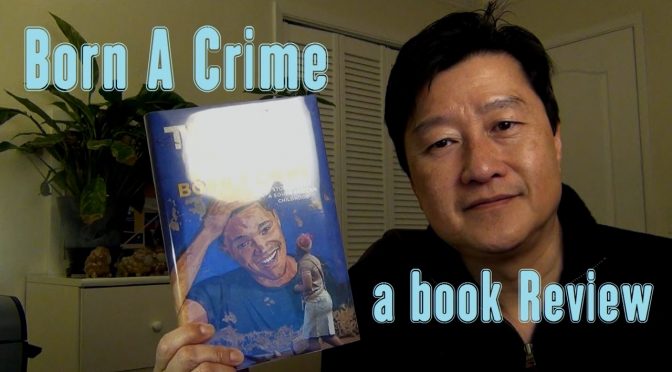Book Review: “Kill The Rising Run” by Bill O’Reilly and Martin Dugard
Killing the Rising Sun is one of those books that attract people to read about the history. As the saying goes, “those who fail to learn from history are doomed to repeat.” And I sincerely hope the history of World War II would not repeat. World War II didn’t happen too long ago; it was in my parents’ generation when it happened and is still vivid in their memory. We baby boomers and future generations benefited enormously from the sacrifices their generation made. All I knew was US dropped 2 atomic bombs in Japan in retribution to their attack on Pearl Harbor and quickly wrapped up the war. Oh, there were a few skirmishes in between trying to take over some islands for military bases.
Not so quick, there were so many events that happened and so many lives lost on both sides. In this book, the authors wrote a vivid chronology of how the U.S. was involved in World War II, the background stories of the European War, and the how U.S. refocused to fight Japan after that war was wrapped up with Germany’s surrender on May 7, 1945. From the Japanese’s attack on the Pearl Harbor on December 7, 1941 to the surrender of Japan on September 2, 1945 was a long nearly 4-year war. These days, it’s hard to imagine to be in a war that lasts more than a few days.
Overall, the stories read like a novel but that’s trivializing the many thousands of lives lost. It was riveting and mesmerizing – many of stories were told as observed by real people, instead of describing the general fact. Though we all knew what happened in the end. I kept on listening to the audiobook attentively, lest I missed anything. Very good read and a must read for those we can’t appreciate what good lives we’ve got now.
The book started with the battle of Pelelius, a Japan-occupied island near Philippines. This was the MacArthur’s triumphant return on his way to retake Philippines. On chapter 3, Harry Truman, a humble Missouri native came into the picture as the Vice President, after helping FDR re-elected. Quickly, the story moved toward the last year of the World War II when German’s surrender is almost secured when FDR gave away East Europe to Stalin of Russia and putting his focus on fighting Japan. Then MacArthur retook Philippines as the Iwo Jima battle was being concluded around February and March of 1945. These were important battle fronts that paved the way for US to get close to Japan for dropping the Atomic Bombs. Starting from Chapter 9 (about one third of the book), Truman inherited the US Presidency from FDR then the spotlight of the story was on the Atomic Bombs: the development and testing and the final drops. The fall of Okinawa on June 23, 1945, set up the final stage of the invasion of Japan that MacArthur wanted but it’s not up to him. There was a detailed description of the events leading to the sinking of USS Indianapolis by Japan’s I-58 submarine. Finally, the two Atomic Bombs: Little Boy and Fan Man sealed the fate of Japan’s surrender.
Key takeaways:
– The book started with a letter by Albert Einstein to Franklin Roosevelt on a potential weapon that could be made using his Relativity Theory in triggering in splitting an atom (E= MC^2). FDR almost didn’t get it until the second time he heard about it. The Manhattan project was seeded on October 12, 1939 – almost 6 years before the bombs were dropped in Japan. Ironically, Einstein’s was never invited to the Manhattan Project to build the Atomic bomb because his “security” risk.
– The story about General MacArthur was less than flattering. I knew a little about his insubordination from the book Truman by David McCullough. It’s very clear that both FDR and Truman hated his guts. I don’t blame Truman though and would do the same thing by giving him a cold shoulder and not notifying of the A-bomb until a few days before they were dropped. MacArthur was famous for making grand shows in the public by having his “return” photographed and his towering photo over Emperor Hirohito after the war ended.
– It appears the premise of God-given “superior race” armed the German and Japanese soldiers with great courage and brutality against the “other inferior” races. It’s pretty sad that humans or the power, like the Japanese Emperor, propagated such myths to stay in the power. From these historical facts, shouldn’t we name racism as the source of all wars and evils?
– Kamikaze, the suicide planes, changed the war tactics. It’s very difficult to fight people or terrorism for that matter when your enemy is willing to commit suicide to win. This was a big headache for US Navy at that time. Many ships were destroyed as a result.
– The firebombs consists of cylinders of napalms destroyed a big parts of the cities including Tokyo, Osaka, Kobe, and Kawasaiki and more than a million residents lost. but they didn’t make the same impact as the Atomic Bombs.
– The torpedo and sinking of of USS Indianapolis by a no-name Japanese submarine I-58 was rather ironic. USS Indianapolis carried the Little Boy atomic bomb to Tinian island before being sunk on its way to Manila. The rescue mission was accidental – how do you lose a battleship without people’s being aware of it? It’s a little Japanese victory that didn’t turn the tide for Japan but Charles McVay, the captain at helm, paid the price by committing suicide 23 years later.
– The second atomic bomb, Fat Man, was made for a Hollywood movie. The Bockscar B-29 plane couldn’t find its target and moved to Nagasaki target instead. It almost didn’t make it as back as it ran out of fuel upon its arrival at Okinawa – couldn’t even taxi off. And then the bomb was falsely activated in the air. So much excitement. At the end, it did its job of convincing Japan to surrender itself.
– The capture of Hideki Tojo at his farmhouse, despite his own failed suicide, a bullet that missed most of his critical organs, was an interesting, ironic story. He was later hanged for his war crimes.
– Emperor Hirohito escaped any war crime committed throughout the war was simply amazing to me. How MacArthur orchestrated the saving of his God-like face in front of the Japanese people, citing him as the stability factor. To me, that’s an oversight and atrocity.
– Russian’s invasion into China’s Manchuria and declaring war against Japan helped forcing Japan’s unconditional surrender. Later, it turned over the territory to the Communist China and contributed the demise of Chiang Kai Shek’s KMT.
Book Review: “Homegoing” by Yaa Gyasi
Reading Homegoing is like eating at a Chinese banquet with 14 courses but each course could fill you up by by itself. And yet at the end, you feel completely satisfied, emotionally and intellectually enriched with what the black/negro human race went through last two hundred and fifty years or so. It’s like the modern version of “Roots” the movie and yet seem more realistic and multi-faceted like video recording the progressive scenes in many angles. The author captures the emotions with good usages of metaphors and descriptions, which in turn moves the readers in profound ways. Each of chapters or stories constitutes one episode of a series of 14 episodes. I can’t wait to see someone make them into a TV series.
The stories are hard to follow in the beginning as they happened about two hundred years ago and alternated between two genealogies, Effia and Esi the two half sisters, for which a genealogy chart on the first page comes in handy to reference occasionally during my reading book and listening to the audiobook. The audiobook narrated by Dominic Hoffman is fantastic with his slight African accent that seem to take on each character with fidelity.
I don’t usually read novels but this novel is a real treat even if you’re just remotely interested in the history of the negro race because in many ways they are stories of the underprivileged to nth degree. If the book doesn’t move you, then you’re either too stone-hearted to be in a human race or too numbed to feel the pain. To the most of us, I highly recommend this book.
Spoiler Alert: Stop here if you plan to read this book.
My key take-aways:
– The horrific condition of stacking hundreds of captured women slaves in the dungeon underneath the castle seem unbelievable. But it’s not surprising given the cruelty of slavery in itself.
– In fact, the slavery was already a common practice among the African tribes before the Whites started taking the black slavery and perhaps among the different white ethnics speak to the degree of cruelty the humans are capable of imposing. The roles of the black themselves contributing to the slavery was also explicit.
– During the Civil War, the awkward status of the blacks between the slave states and free states were captured in the book. Any black person can be kidnapped to be a slave in the southern slave states seem incredible to me. But that happened often as highlighted in two-shovel H’s story, who was falsely imprisoned in Pratt City, Alabama and turned into slaves digging in coal mines.
– Sometimes the betrayal of someone you love hurts no less than the hurt from the whites as in the case of Robert, the mostly white husband, to Willie, a religious, self-determined daughter of H.
– The underprivileged tend to be in a constant state of helplessness and get trapped in the drug abuse as in Sonny’s story. He could blame on abandonment of his father. But through the love and care of his mother, Willie and his son, Marcus, Sonny eventually won over drug abuse though precariously.
– Akua, the crazy woman, burned down her family hut because of her hallucination about this fire woman. Two of her children were burned to death and she was exiled out of the village after her husband, Asamoah the handicapped warrior stood out for her to save her life. Her son, Yaw, was sent to a remote place for schooling and came back to reunite with her after being a history teacher at his middle age. This story is a bit mystical but still believable.
– Yaw’s line of genealogy stayed in Ghana, Africa until he emigrated to Africa so you get a feel for what’s happening in Africa struggling for independence from England, while the other genealogy had descended from the slaves kidnapped to America struggling against injustice. The contrast between the two is interesting.
– I knew from the chart that there are two genealogies that will come together at the end. This kept me anxious to how the book will end. And I was not disappointed. The fear of fire and the fear of the water come together so beautifully at the end is a master piece.
Once again, the book offers a full course of history, vile human natures, and hope. And I am hopeful for the future of human race.
A few interesting youtube videos with the author Yaa Gyasi:
Book Review: “Gut: The Inside Story of Our Body’s Most Underrated Organ” by Giulia Enders
Giulia Enders, the author of this book Gut, really spilled out her gut about our gut, which by her words was the most underrated organ in human bodies. And if you read this book like I did, you’ll agree.
I learned many things about our gut or gastrointestinal systems. For examples,
– Pooing involves quite a few plumbing and process steps; the coordination between the inner sphincter and outer sphincter (the anus) is quite an amazing feat. The book also has a chapter on feces – shapes, types and colors. Everything you want to know about it.
– The two little bumps on the cheeks and two below your tongue secrete saliva to digest the food. The saliva contains pain killer that may explain why we get comforted or analgesic effect when we chew gum or anything at all.
– Bad breath is often caused by tonsil stone.
– The shape of the stomach is such that the food can go down smoothly without backing up when we laugh or talk and liquid food can get out to the small intestine on fast track. But as a result it traps gas that we need to burp out.
– The surface area, especially the small intestine, is roughly 100 times larger than our skin. This is so we can absorb every bit of the nutrients.
– Cooking breaks down or “unfold” the protein to save our stomach from doing the work.
– Our appendix provides immunity cells to fight bad bacteria and also store good bacteria.Of course, it often become a victim of infection that resulted in appendicitis.
– Medicine can take effect faster when absorbed through the last few inches of our large intestine (colon) through the use of the suppository because it won’t go through liver to get filtered out.
– Fat goes through the lymphatic vessels straight to the heart before gets pumped into the blood before getting to liver to be absorbed. This is why eating “good” fat like extra virgin olive oil helps to reduce blood vessel clotting.
– Don’t use olive oil on frying pan as the heat may alter its fine characteristics. Use butter or coconut oil instead because they are most stable under heat despite its saturated fat.
– Soy and quinoa are two plants that contain complete amino acid.
– There are two nervous systems: one controlled by our brain and the other of the gut that control the “smooth” muscle system without our knowing it. Reflux is a symptom of the two nervous systems stumbles upon each other.
– Vomiting is an act that takes coordination of all the organs within our gut in reverse order. Not many animals are capable of vomiting. It’s one of our survival advantage.
– Extra risk taking behavior could be attributed to a certain bacteria in our gut. This could be a frontier for the insurance industry and privacy issue.
– The gut receives a lot of sensor information and provides us the “big picture,” hence playing a huge role in how we perceive the world through insula- sometimes more so than our brain. Also, it plays a huge role in how we feel emotionally.
– Part III covers the microbes in our gut system. There is a lot of information. But it boils down to good and bad bacteria. Good bacteria help us digest the food and convert to vitamins and keep the bad bacteria at bay. The bad bacteria made us sick but it also train our body to come up with a defense mechanism – the immunity cells.
– The book was written in humorous ways especially the illustrations by her sister.
There are three parts to this book:
1) Gut Feeling, where she covers an overview of the gut system and quickly discussed how things go in, and come out and what happen in between.
2) The nervous system of the gut: the amazing orchestration between the gut, the brain and the rest of the human organs.
3) The world of the microbes: the microbes play huge roles in human’s absorption of nutrients and immunity system. Many of the causes and effects are still unknown and under research.
Though the author is German, the book is well written in English and with good humor and great illustration from her sister. I highly recommend this book.
Book Review: “Evicted: Poverty and Profit in the American City” by Matthew Desmond
The author went with the poverty ridden Wisconsin neighborhood. There were many characters in the story. There were the rich black landlord vs. the poor black tenants. Some of the tenants were trapped in vicious cycles of drug abuses that they couldn’t get out of. And there are some just one paycheck and food stamps away from being evicted. The landlord charges a more-then-normal rent in the inner city because they could and they need to handle the eviction and rent shortfalls.
This book is a difficult one to read that people could get to the point of being evicted from one home to the next. Some of the people hadn’t had a good shower for a while, much less a home.
The author offer some solutions about Section 8 voucher, the importance of having a roof over the people as the basic human need for dignity.
I wanted to do a video review of this book and I found it too emotional draining to review the book after listening to the audiobook. The author accomplished his goal of getting people to care but the price is too high to solve all the social issues that the book brought up: the lack of life purpose, drug addictions, and vicious cycles of poverty. They seem overwhelming and helpless.
If you’re interested in knowing how the bottom 1% live, this is the book for you but be careful not to get dragged down by it.
Book Review: “Hillbilly Elegy: A Memoir of a Family and Culture in Crisis” by J. D. Vance
This is a story or memoir about a young boy living under the most adverse environment of the hillbilly family and became a successful attorney through his own perseverance and lots of help from some members of his family. By definition, hillbilly refers to an unsophisticated country person, associated originally with the remote regions of the Appalachians. The author’s family matches that definition well.
In the book, he talks about the history of his family members started from the great grand parents to his early young life. Then he covers his teenager years staying with his grant parents, followed by his joining the marines. Finally, he describes his effort in returning to college and getting a Yale Law degree and marrying his wife.
In this book you get to understand the family culture of a hillbilly family but you’ll learn that it’s hard to succeed in life without some help from someone you care about, in his case, his grandmother, who he called “Mamaw”, and his grandfather, who he called “Pamaw.”
The author is critical of the hillbilly’s mentality: contradicting beliefs on defending family members and cheating on them, being tough and yet lazy, being religious and claiming church-going and yet have low statistics of church-going and violating commandments. In fact people in the the church-belt region have a lower church attendance.
He learned the evolved rules of fighting from his Mamaw. Fight only in defense of yourself, but sometimes you’d need to fight even if you’re not defending yourself. He was taught the trick of fighting: turn side way with your shoulder against the opponent and punch in the belly button.
Constant moving without a stable environment could do severe damage to a kid’s life as in the author’s case, especially when the environment was of constant fighting and even violence between his mom and the boyfriends/husbands, resulting in “revolving” doors of father figures. The key indicator was his school grades and poor health due to distress. Conflict resolution is not his mom’s strong suit, nor of the “normal” hillbillies. His mom even attempted suicides by crashing her car, later drug abuses.
His relationship with his mom was a treacherous one. It went from a parent/son relationship to room-mate, sometimes abuser including one time that she threatened to crash the car with him in it. He escaped and hide himself in a stranger’s home, whose door was broken in before being dragged out by his mom who was eventually arrested by cops. It was a scary moment for a kid who would have to lie in the court to get his mom out of trouble.
The author adores his sister, Lindsey, who he called his protector from his Mom when he was most vulnerable. He describes the time when her childhood modeling when up in flames. He probably wouldn’t stand a chance without his “half-“sister as he later found out in great distress that his big sister has a different father.
Mamaw considered herself a religious person and read bibles often but didn’t go to church, which she considered as “organized religion” with contempt – “a breeding ground for perverts and money changers.” Mamaw was a strong influence on his getting good academically when he spent his last three and stable years of high school with her.
The author got into more details of his relationship with his dad who gave up his parental right and allowed him to be adopted by Bob, who disappeared from his life after just over a year. His father’s story was more reasonable why he gave up – to not cause any more trauma in his son’s life. The father-son relationship developed later in his life.
His relationship with Papaw (grandfather) was a special one. He drew his father figure from him – a classic, terrifying hillbilly. When he was 13, his Papaw passed away after not showing up in his Mamaw’s house. The funeral brought back all the good and interesting stories about his Papaw.
He joined the marine to get trained in physical and mental toughness and fitness and became and acted like an adult as seen by the barber in the corner store where he walked by many times in Middletown. He was able to payback somehow to his Mamaw until her death, the end of his “protector.” The marine taught him many life lessons, leadership skills and the confidence of achieving to his best abilities by giving his all.
He told of his college life and decision to go for a Law degree and how he got accepted to Yale. At Yale, he describes occasions of “class tourism” trying to know how the upper class works, interacts, dresses and behaves. It was foreign to him and yet opened many doors to him. His experience at Yale, whether to apply to editor role in the Yale LawJournal, apply to judge clerkship and what it means to your law career could be helpful for someone looking into the legal profession. And importantly he knew how to leverage his “social capital.”
Having been in an abusive family environment, ACE “Adverse Childhood Events,” or he called “hillbilly school of hard knocks,” he developed a run-away reaction to conflicts. He had to overcome that fight-or-flight impulse with his relationship with his wife, Usha. What kept him alive at the young age turned out to be an obstacle for him to assimilate to the “normal” society, like fighting for his “honor” when someone cut him off while driving.
It was heartbreaking that he had to check in his mother to a motel when he was informed that his mother passed out in a car with a needle stuck to her vain. In contrast, he turned out well fighting the demons from growing up in that environment.
This is a great book for someone not exposed to the hillbilly culture to understand their plight and why our current President Donald Trump managed to win the election with their help.
I highly recommend this book.
Book Review: “Born a Crime” by Trevor Noah
I heard about Trevor Noah, when it was announced by Comedy Central that Trevor Noah, who?, was going to replace Jon Stewart. Where did this guy come from. I watched a few of his comedy shows and saw that he was very funny. Then this book came out. The title was definitely catchy. A crime to be born into a mixed-race family! Where was this? When did this happen? That’s when I got hooked. I utterly enjoyed this book and highly recommend this book to anyone who don’t appreciate and understand racism, poverty, and how some part of the world lived. It would definitely make you appreciate what we’ve got in this country.
– Intro page before each chapter set the tone or foreword for the chapter. Nice style.
– The book started out with this story of his being thrown out of minibus as a 10+ year-old youngster by his mother because his mother saw the danger of being killed by the opposing tribes men. He survived and fall and ran – his key survival talent.
– Since he was born “illegally” because his mother’s desire to have her own family, he was frequently hidden from public eyes to avoid having to explain his fair skin.
– Ultimately you identify with the people surrounding you. He considers himself black because he’s surrounded by black family members. He told this hilarious story of his shitting inside the house as his blind great grandmother Koko “smelled” on. The outcome was simply outrageous when the family decided it was Satan’s work to leave the poop in the garbage can. He also told of the story of being a chameleon (white, black or colored) because he could speak a few dialects and English.
– He had many run-ins with troubles. One time he accidentally burned down a house by leaving a magnifying glass on a mattress where the sun came in. He’s a trouble maker since young age.
– Pets stories: Cats are perceived as witches. His first pet was gutted and hung when he came back one day due to the superstition of country men. Then he moved on dog. Fufi’s story: “you don’t own the thing you love.” He discovered in his young age that his Fufi was also owned by another family during time he was in school.
– Girls story: got dumped on Valentine’s day once, then he had a crush with this girl but he never told her his feeling then one day she’s moved out of the country. Then on Trevor’s prom night with Babiki, the most beautiful woman that he never had a conversation with and lastly found that they didn’t speak the same languages. Sad and funny!
– At some point he reconnected with his white father after a 10-year gap. He found that his father, Robert, kept track of his career all these years. Despite their lack of deep relationship, they kept a safe distance from each other to his dad’s liking as Robert was a very private man.
– Distinctions between colored, black and white. Chinese are treated as colored and Japanese are treated as white during apartheid. Apartheid encourage struggled between races.
– To survive the hood, he was a food dealer because he ran fast, sells pirated CD’s, bartering stolen things to make extra money. He learned the basic of business that way.
– Almost got caught stealing chocolate bar, instead his best friend, Teddy, was arrested. Despite the video recording, he was never picked out.
– Trevor’s adventure into CD pirating and DJ. “Go Hitler”chanting shocked the Jewish school.
– Very good observations on legal laws and parents’ rules: laws appear to be more rational than parents’ rules; parents server as the “judge, jury, and executioner for your entire childhood, and it feels like they give you a life sentence for every misdemeanor.” Noah’s one-week experience in the jail for driving his step-dad’s car without permission and getting stopped by police who mistook him as a carjacker. His experience in jail clearly highlight the tensions of races among the white, black and colored. Ironically, the “colored” gang’s reputation protected and confused him at the same time. He ended up sided with the “white” as they tend not to be hard criminals. Because of multi-lingual skill, he also managed to help this “hulk” guy in communication with the police. At the end, he was bailed out by his mother.
– Mother’s love really showed when said, ” “Everything I have ever done I’ve done from a place of love. If I don’t punish you, the world will punish you even worse. The world doesn’t love you. If the police get you, the police don’t love you. When I beat you, I’m trying to save you. When they beat you, they’re trying to kill you.” I’ve seen similar quotes from people who had a difficult childhood and turned out good. It really takes all a mother can give to not have the children gone astray and that’s mother’s love for you. After his mother had her second son, she wouldn’t use violence any more as Noah said, “relationships are not sustained by violence but by love. Love is a creative act. When you love someone you create a new world for them.”
– Being a “colored” person in South Africa could be very confusing. This quote of his spelled out his dilemma: ” Because racism exits, and you have to pick a side. You can say that you don’t pick sides, but eventually life will force you to pick a side.
– The last chapter was a heartbreaking story about his mother’s being subjected to the domestic violence of his step father, Abel, who turned into a tyrannical monster after quitting weed and started drinking himself to his failed car garage, despite the his skill and all the efforts of Noah’s mother to turn the business around.
– The first time his step father hit his mom was when his was 9 years old. He and his mother endured many more years of beating from Abel who at Noah’s 6th grade beat him violently because his faking his mother signature to avoid going to some classes. Noah was able to move out but his mother, Patricia was trapped with two sons from Abel.
– The tragic ending happened when Noah got a call from his little brother that Mom was shot by Abel. He rushed back to see his mother at the hospital and discovered miraculously that though she was shot in the head, the bullet missed all the critical organs, arteries, veins without causing too severe of a damage. During his hospital stay, he discovered that she didn’t have a the medical insurance. He was willing to pay the hospital bills but the discussion of “black tax” came up where the children couldn’t get out under the spell of the poverty because he had to pay for the sins or debts of the family. And the vicious cycle continues as they plunged into poverty themselves. There was another observation his made that mothers would offer the children unconditional love but not necessarily reciprocated by their children. I thought about it and agreed with him on that.
This was a great read for me to understand and appreciate the upbringing of a man born into a unfortunately circumstance (mixed-race family) in an odd country during the changing time of the country. There was pain, love, hate, crime, and drama all wrapped into this one man, now a successful comedian. What a story! I don’t think any fictional author could come up with a better story.

